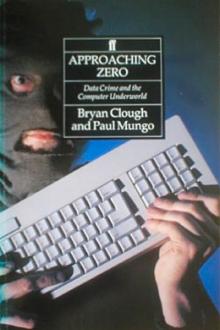The Kidnap Years: David Stout (best inspirational books TXT) 📖

- Author: David Stout
Book online «The Kidnap Years: David Stout (best inspirational books TXT) 📖». Author David Stout
If he wanted to catch up with the news, Kelley had that evening’s St. Louis Post-Dispatch to go through. The Monday paper had a darkly amusing item about the funeral of mobster Giuseppe “Joe the Boss” Masseria, who had been shot to death several days before at his favorite dining place in Brooklyn.
Masseria, forty-five, had traveled to Coney Island’s Nuova Villa Tammaro restaurant in his heavily armored car. The armor plating and inch-thick glass protected him from snipers and street ambushers but not from the perfidy of his own bodyguards, who excused themselves from the table just before several assassins walked in to end Masseria’s last meal. As Masseria lay in a puddle of chianti and his own blood, someone slipped an ace of spades between the fingers of his right hand. Was the so-called death card placed there by a rival gangster or by an insensitive tabloid photographer? No one could say.
But there was more somber news: yet another kidnapping in the Midwest. Fred J. Blumer, president of a beverage company in Monroe, Wisconsin, had endured more than a week in captivity during which he had been handcuffed and blindfolded.
On April 9, Blumer was grabbed in front of his home by three gunmen. Early on, the kidnappers contacted the secretary-treasurer of Blumer’s company and demanded a ransom of $150,000. But in negotiations with the Blumer family, the demand was lowered to a mere $6,000. On their way to pick up the $6,000 from Blumer’s brother, the kidnappers were intercepted near Winona, Illinois, by Chicago police, who had gleaned information on the kidnappers’ moves through wiretaps.
After a gun battle, the kidnappers sped off without getting their money. Fred Blumer, who was fifty-one, was soon freed near Decatur, Illinois. Perhaps the kidnappers were amateurs who had panicked, or maybe they were members of an Iowa-based gang of bank robbers and beer runners, as a Chicago police lieutenant speculated, rather vaguely, in predicting quick arrests.* Regardless, the ordeal of Fred Blumer was enough to make people wonder how safe they were in their own homes and neighborhoods.
The Kelleys’ phone rang around nine o’clock that Monday night. The man on the phone said his name was Holmes, that he and his nephew were visiting from Chicago, and that the nephew had developed a sudden and severe earache.
Kathleen heard snippets of her husband’s end of the conversation, enough to know that someone was ill and that he was giving instructions. “Oh, yes, I know him,” her husband said. She presumed he was referring to another doctor.
Kathleen was relieved when the conversation ended and her husband settled back into his easy chair. It was no night to venture outdoors! Besides, a recent sensational kidnapping had hit too close to home, quite literally. One of Kathleen’s sisters was married to William Orthwein, a lawyer who was a cousin of Buppie Orthwein.
Isaac Kelley was Kathleen’s second husband, her first husband having died after only three years of marriage. The Kelleys had had two daughters together, and Kathleen had a son from her first marriage.
Kathleen was the daughter of William Cullen McBride, a well-to-do oil executive. Her inherited wealth and her husband’s considerable income enabled the Kelleys to travel widely and belong to several exclusive clubs. Knowing that they were blessed, the Kelleys gave generously to charities.
Around ten o’clock, Kelley told his wife the patient must not be as bad off as first thought, as an hour had passed since the initial call. “I’m glad I don’t have to go out on a night like this,” he said. Reflecting for a moment, he added, “There was something very queer about that phone call. They must be new to the area.”14
Just then, the phone rang again. It was Holmes, calling back to say his nephew was worse. “I can bring him to your house,” the caller said.
“No,” the doctor said. “Keep him comfortable. I’ll come to see you.”
Kathleen heard her husband repeating the directions he was being given: “A filling station at the North and South road…two blocks east…a trestle…second house…”
Watching her husband don his raincoat and derby and fetch his medical kit, Kathleen was uneasy. “Are you sure you have to do this?” she asked. But she already knew the answer; her husband was a doctor, after all, and always willing to respond to an emergency.
The windshield wipers on the Lincoln coupe could barely keep up with the rain as Dr. Kelley drove to the address Holmes had given him and pulled into the driveway. At first, he wondered if there had been a mistake: the house near the intersection of Oleta and Crescent Drives was dark save for a single window where the form of a man was silhouetted by a light.
For a moment, Kelley didn’t know what to do. Holmes had said he would watch for the doctor and greet him. Kelley sounded the car horn to alert people inside. And just then, he heard another car pull into the driveway behind his own.
Trouble, he thought. Then the passenger side door was pulled open, and a man got inside.
“Back up and don’t look at me,” the man said as he pressed a gun barrel against Kelley’s body. “Just drive where I tell you.”
Fighting to keep his composure, Kelley drove on Oleta Drive, then turned onto a smaller road as he thought he’d been told. But he had misunderstood, and the concrete yielded to gravel.
“What in the hell are you doing?” the abductor said. “Can’t you drive this automobile?”
Kelley put the car in reverse and returned to the paved road.
Kelley was six feet two inches tall and a muscular two hundred pounds. He was not





Comments (0)